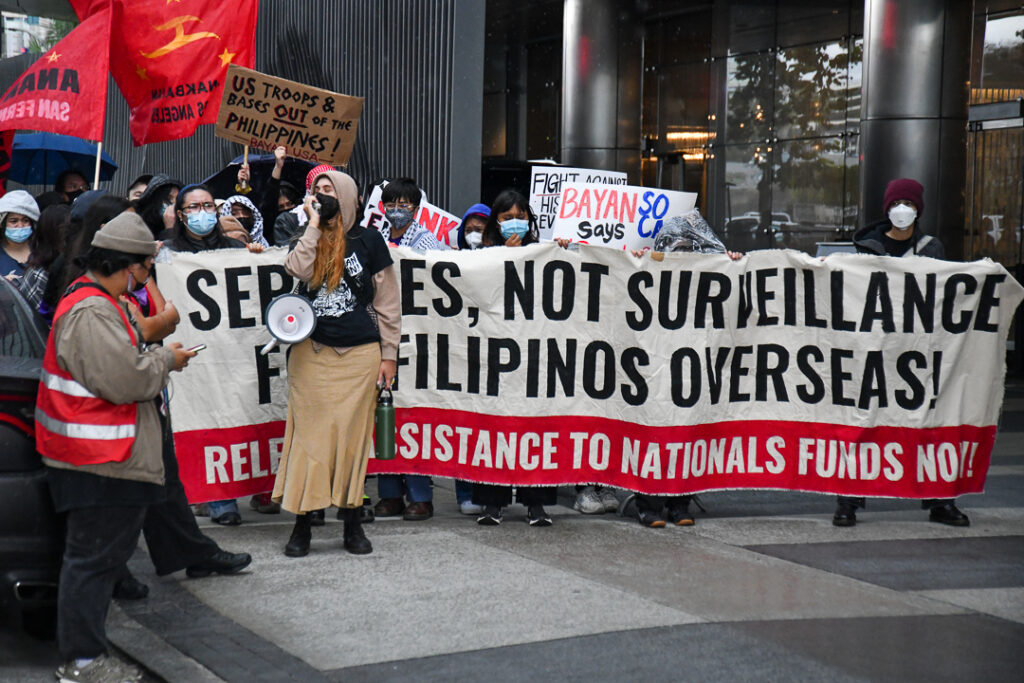More than 60 Asian American groups raise alarm over surveillance program
LOS ANGELES – More than 60 Asian American groups have opposed the anticipated reauthorization of a controversial surveillance measure that could be used to racially profile their communities.
In a letter to Congress, the groups said the statute – Section 702 of the Foreign Intelligence Surveillance Act (FISA) – has been “misused” to spy on Americans in the past.
“The consequences of such misuse have had a profound impact on our Asian American community, resulting in wrongful targeting, unjust surveillance and devastating tolls on careers, livelihoods and reputations,” said the letter signed by a coalition of 63 Asian American organizations.
The coalition is led by the Stop AAPI Hate, Asian Americans Advancing Justice (AAAJ) and the Asian American Scholar Forum.
Section 702 is a surveillance program designed to collect information related to national security threats from foreigners outside the United States. It is granted through annual certifications and relies on the mandatory assistance of American telecom providers.

The anticipated reauthorization of Section 702 was one of the issues raised by Filipino activists who held a rally to protest the APEC summit and the Los Angeles visit of President Ferdinand Marcos Jr. on Nov. 18.
“Services, not surveillance, for Filipinos overseas,” said one of the protesters’ banners displayed outside JW Marriott Hotel in downtown LA, where Marcos met with Filipino-American community and business leaders.
Climate of fear
The letter said the “disproportionate targeting” of Asian Americans has fostered a climate of fear among Asian Americans and their families, “causing anxiety about being stopped, monitored or investigated while engaging in everyday activities.”
Asian Americans are likely overrepresented in the surveillance data due to their ties with family, friends and business associates abroad, according to the Asian American Scholar Forum fact sheet.
The fact sheet stated that federal agencies like the FBI and CIA frequently target members of the Asian American and Arab, Middle Eastern, Muslim and South Asian (AMEMSA) communities based on “unfounded presumptions of connections to foreign interests, particularly amid rising geopolitical tensions.”
“This targeting leaves these communities more vulnerable to warrantless surveillance compared to the average American,” the fact sheet stated.
The coalition urged lawmakers to reject a short-term extension of Section 702. It called on the lawmakers to examine the statute through standalone legislation, subject to open debate and amendment.
Government Surveillance Reform Act of 2023
The coalition also advocated for a floor vote on the Government Surveillance Reform Act of 2023, a bipartisan bill introduced earlier this month that will establish new safeguards for government surveillance and accountability for abuses.
“Americans know that it is possible to confront our country’s adversaries ferociously without throwing our constitutional rights in the trash can,” said Sen. Ron Wyden, one of the lead sponsors of the bill. “But for too long surveillance laws have not kept up with changing times.”
In a previous letter to Congress, the coalition said the Asian American community has a long history of being treated as “perpetual foreigners” and scapegoated as national security threats based on race, ethnicity, religion or ancestry.
It cited the incarceration of more than 120,000 US residents of Japanese ancestry during World War II in the name of “national security.”
The coalition said it was “one of the darkest stains in our nation’s history,” yet history continues to repeat itself, with the current “hate, violence and bigotry against Asian Americans.”

